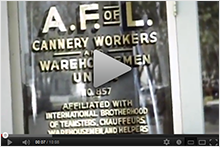Meal & Rest Breaks
California law grants most private sector employees the right to take meal and rest breaks. Below are answers to some of the most commonly asked questions about meal and rest periods.
- Do I have the right to a meal break at work?
- Do I have the right to a rest break at work?
- What if my employer does not provide a required meal or rest break?
- What steps must my employer take in order to provide a meal period?
- What is my employer prohibited from doing to prevent meal periods?
- Does my employer have to guarantee that I actually take the meal period?
- When in the work day must a meal period be taken?
- When in the work day must a rest break occur?
- What can I do if my employer does not provide meal or rest periods as required by law?
- Do these meal and rest period requirements apply in the Union workplace?
- Which jobs are subject to meal and rest break exceptions?
To learn more about your rights, view our Employment Law page, or contact us for more information.
Do I have the right to a meal break at work?
Yes. California requires most private sector employers to provide an employee with one 30-minute uninterrupted meal period if the employee works more than five hours, and a second 30-minute meal period when the employee works more than ten hours.
Do I have the right to a rest break at work?
Yes. If an employee works more than 3.5 hours, California law requires most private sector employers to provide one 10 minute rest period for every four hours worked or “major fraction thereof.” Here’s what that means:
- Shifts of 3 ½ to 6 hours require 10 minutes’ rest
- Shifts of 6 to 10 hours require 20 minutes’ rest (two rest periods)
- Shifts of 10 to 14 hours require 30 minutes’ rest (three rest periods)
- …and so on.
What if my employer does not provide a required meal or rest break?
If your employer fails to provide a required meal or rest break, your employer must pay each affected employee one additional hour of pay for every day in which a required meal or rest period is not provided.
What steps must my employer take in order to provide a meal period?
The California Supreme Court ruled has that in order to satisfy its obligation to provide a meal period, an employer must:
- relieve employees of all duty;
- relinquish control over their activities;
- permit them a reasonable opportunity to take an uninterrupted 30-minute meal break;
- allow them freedom to come and go as they please.
What is my employer prohibited from doing to prevent meal periods?
Employers must not:
- Impede or discourage employees from taking their meals;
- Create incentives to forego meal periods;
- Schedule employees in a way that makes taking meals difficult; or
- Create a culture encouraging skipping meal breaks.
Does my employer have to guarantee that I actually take the meal period?
No, the employer need not guarantee that the meal period is actually taken..
When in the work day must a meal period be taken?
A first meal period must be taken no later than the end of an employee’s fifth hour of work. A second meal period must be taken no later than the end of an employee’s tenth hour of work.
When in the work day must a rest break occur?
The law requires that the rest period must be in the middle of four-hour work period “insofar as practicable.” Therefore, the employer must make a “good faith effort” to allow rest breaks in the middle of each work period, but may deviate from such scheduling where practical considerations render it infeasible to do so.
What can I do if my employer does not provide meal or rest periods as required by law?
If your rights to receive meal or rest periods are violated, you may enforce your rights in court. Prevailing employees in meal and rest periods cases may receive the unpaid hour of pay for each day in which a required break was not provided, plus attorneys fees and other remedies. Lawsuits for violation of the meal/rest break rules may be filed as individual cases, or as class actions on behalf of all the employees who were affected by the violation. If you think your right to meal/rest breaks has been violated, please contact one our offices for a consultation.
Do these meal and rest period requirements apply in the Union workplace?
With some exceptions, meal and rest law applies in the private sector Union workplace, but the Union may bargain greater protections than required by law.
Which jobs are subject to meal and rest break exceptions?
Under limited circumstances, meal period law does not apply to the following occupations:
- Construction;
- commercial drivers;
- officers in the security services industry;
- electrical or gas corporation employees; and
- public utility employees.
Meal period law does not apply in the these occupations where there is a valid collective bargaining agreement providing for:
- wages, hours of work, and working conditions;
- meal periods;
- arbitration of meal period disputes;
- premium wage rates for all overtime hours worked; and
- a regular pay rate at least 30% more than the state minimum wage.
Similar exemptions exist in the motion picture and broadcast industries.

